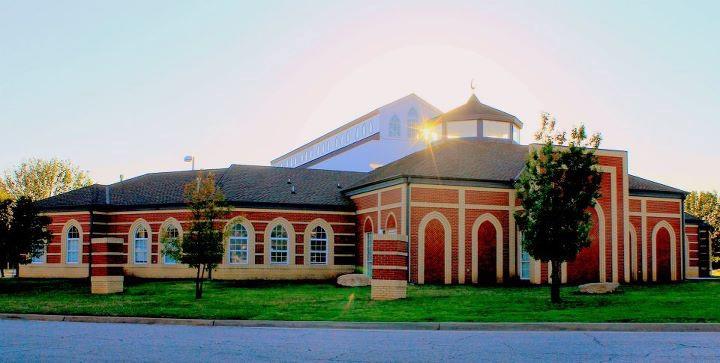I was born in 1983, raised in the shadow of the Iranian hostage crisis by an Iranian Shia Muslim father and a white Catholic American mother – unique circumstances in the Kansas town of my early childhood.
For much of my life, as an adolescent and a young adult, I struggled with issues related to my identity. As the product of multiple cultural and religious influences, I did not quite fit into one of those boxes they ask you to check off on official forms.
I always felt like I was being pressured to make a choice that would inevitably sacrifice part of my being with the goal of assimilating into a vision of society created by others, not for me.
This led me to a spiritual journey throughout my teenage years, searching for answers to the questions that had been building in my mind since the day I began to inhabit Earth.
In July 2012, I embarked upon a new career path when I accepted the position of executive director of the Oklahoma chapter of the Council on American-Islamic Relations.
I was equal parts excited and nervous to take the helm of a relatively young civil rights advocacy organization.
One hot summer afternoon, while I was still getting my bearings in my new position, I learned of an active campaign coordinated by an Edmond pastor to oppose the expansion of the Islamic Society of Edmond mosque.
The foundation of the anti-Mosque movement was laid in 2010 with the so-called “Ground Zero Mosque” controversy. Fueled by Islamophobia and combined with the emerging popularity of social media, it was no surprise that this movement to demonize Islam, Muslims and mosques spread rapidly throughout the country.
Although we had seen little opposition to building Islamic centers since the establishment of the first mosque in Oklahoma in the 1960s, we had seen a backlash to mosque plans for expansion in neighboring states like Texas. I knew it was only a matter of time before this sentiment made its way to Oklahoma.
I never imagined that a coincidental visit to a mosque in Edmond, Oklahoma, would provide the answers my teenage mind had sought and the spiritual guidance my soul craved.
The small, unassuming building, located right across the street from the University of Central Oklahoma, did not even have a sign the first time I walked through its doors. Frankly, it did not even look like a mosque.
However, little did I know that the tiny institution nestled in a suburban community amid more than 300 Christian churches would pave a path of God-consciousness, commitment to social service and a lifelong bond to my fellow human beings, regardless of race or creed – a path I still walk upon today.
Thanks to my time at the mosque, my life was transformed for the better. Twenty years later, I still cherish every moment spent within its blessed walls.
In June of this year, the third in a series of decennial reports was published, titled “The American Mosque 2020: Growing and Evolving.”
This report highlights a few important points that all Americans should know and celebrate if we are to continue being a country that champions religious freedom.
- The overall number of mosques in the U.S. increased by 31% from 2,106 mosques in 2010 to 2,769 mosques in 2020.
- The increase in overall number of mosques directly correlates with the increasing population of Muslims in America, which although still hovering around 1% of the total U.S. population, is significantly larger now than it was only 50 years ago.
- Perhaps most importantly, Muslim congregations are enthusiastic members of their local communities and on average, they are more likely to participate in interfaith and civic efforts than other religious groups.
- Sadly, however, opposition to the construction of Muslim places of worship reveals anti-Muslim discrimination is more institutionalized than other forms of religious discrimination in the United States.
As an American, I celebrate the growing presence of mosques in the United States. The very existence of our country was propelled by the search for religious freedom.
Our forefathers envisioned an America that would be pluralistic in nature, one where citizens of many creeds could coexist in relative harmony.
Thomas Jefferson wrote in response to a proposed Virginia statute, which would have excluded other religious perspectives, that religious freedom was “meant to comprehend, within the mantle of its protection, the Jew and the Gentile, the Christian and Mohametan, the Hindoo and infidel of every denomination.”
Although Jefferson erred somewhat in referring to Muslims as Mohametans, a common mistake regarding the prophet whom Muslims revere and seek to emulate, he and his colleagues were clear that religious pluralism was a foundational principal of the nascent American project – one which we are still building even to this day.
Despite the efforts of a few Islamophobes to block its expansion, the Edmond mosque expanded its facility to welcome the growing Edmond Muslim community, one that gives back to its neighbors every day through charity, community service and interreligious cooperation and sharing.
Thanks to the growing presence of Muslims, alongside all our family across the religious spectrum, I believe that every day we take steps further along this hallowed path toward peace, justice and equality, toward the American promise of which our Founding Fathers dreamed.

